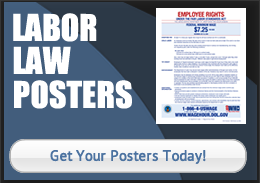Complete Story
05/16/2024
Survey: While minority of respondents experience deceptive selling at dealerships, most still distrust them
Source: aftermarket MATTERS
KPA, a provider of compliance solutions for over 15,000 U.S. dealerships, has announced the results of its 2024 KPA Dealership Trust Survey conducted by The Harris Poll.
The survey reveals that about one-third of respondents have experienced things like deceptive selling, hidden fees, or dishonest salespeople. Yet over three-quarters of respondents (76%) don’t trust dealerships to be honest about pricing. Respondents said the following.
1: About their experience with dealerships
- 34% have felt pressured to purchase “add-ons.”
- 30% agreed on the price and when they went to sign the paperwork found there were hidden fees.
- 28% felt like the salesperson was trying to “trick” them into a deal.
- 29% left one dealership and went to another because they didn’t think they were being honest in their pricing.
2: About their perceptions of dealerships
- 86% are concerned about hidden fees when buying/leasing a vehicle.
- 76% don’t trust car dealerships to be honest about pricing.
- 84% say price transparency is lacking at most car dealerships.
New Regulations Driving Change to Dealer Practices
The survey results come on the heels of the announcement of the Federal Trade Commission’s (FTC) Combating Auto Retail Scams (CARS) Rule, which would protect consumers from deceptive selling or leasing practices. Over the past year, the FTC enacted additional rules for dealerships around pricing transparency, financing, unnecessary add-ons, and keeping customer information secure. Dealerships that don’t follow these laws and regulations can face heavy fines from the FTC at over $50,000 per violation, which is roughly equal to the cost of an average car ($48,000) on the sales lot. Beyond fines, violations can also make dealers appear less trustworthy to potential customers.
What Dealerships Should Do
“Buying or leasing a vehicle is a major financial decision for many Americans,” said Chris Fanning, CEO of KPA. “KPA partners with dealerships to help them operate in compliance with current regulations while also building trust with their customers and earning their dollars.”
To work toward compliance and build trust, Fanning recommends car dealerships focus on the following four practices:
- Create a dedicated compliance team: It should include key department stakeholders including marketing, sales, accounting, and finance.
- Establish Key Performance Indicators (KPIs): Identify goals and timelines for achieving compliance and track progress along the way.
- Review “Three Ps”: Programs, plans, and policies should be reviewed to identify gaps. Develop new ones that include CARS compliance.
- Conduct training and certification: Employees should be trained on CARS compliance when they are hired and throughout the year.





